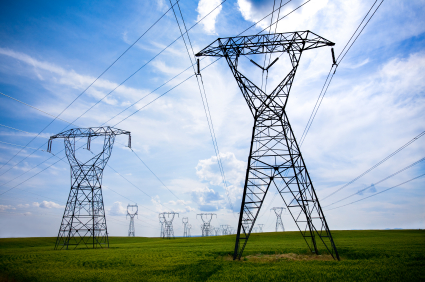Proposed power plant would raise costs for consumers

By Victor Joecks
Since the Legislative Session ended, there’s been a lot of attention paid to lawmakers who supported the largest tax increase in Nevada history
Taxpayers are rightfully outraged at politicians who promised to “keep taxes low,” but then passed the largest tax increase in state history, including a modified version of the defeated margin tax.
Unfortunately, tax hikes are not the only way legislators raise costs for everyday Nevadans. Although it takes years to unfold, previous legislative mandates are also raising the cost of electricity and right now the Public Utilities Commission is facing a decision about just how much those increases will cost.
The path to higher rates started in 2013 when politicians passed SB123. The bill mandated that NV Energy shut down its cheap, reliable and paid-for coal power plants and replace them with power from natural gas and green energy sources. Because NV Energy is a monopoly energy provider, state law provides for the PUC to serve as the ratepayer advocate.
Unfortunately, SB123 removed the authority of PUC officials to stop the shutdown of Nevada’s coal power plants.
At the time, NV Energy estimated the bill would only increase electricity rates by 1.65 percent a year. Now, however, a new study from the Nevada Policy Research Institute, shows that those cost estimates are far too low.
Because of how expensive power from NV Energy is, during the last session, major power consumers, including Wynn Las Vegas, MGM Resorts International and Las Vegas Sands Corp, announced their intention to leave NV Energy and buy power on their own. NV Energy’s costs are so high, these companies are willing to pay exit fees costing tens of millions of dollars, just to avoid purchasing power at NV Energy’s inflated rates. Opting out of NV Energy isn’t an option for the average Nevadan, however.
In response, the Legislature passed AB498, which slightly reduced the requirements of SB123.
NV Energy currently purchases natural gas from Star West Generation, but it has asked the PUC to give the go-ahead to study building a new 706-megawatt natural gas power plant that could cost up to $1 billion. Critics suggest that NV Energy’s motivation for building the new power plant is that it receives a guaranteed return on equity, but doesn’t receive the same return if it just purchases the power from another provider.
Compared to the alternative of purchasing natural gas power from existing power plants, the marginal cost to ratepayers of NV Energy’s plan for a new power plant would be $115 million in 2020 alone.
Building the new power plant would reduce employment by 1,614 jobs, and lower investment in Nevada by $18 million. Electricity rates would increase by 3.2 percent, costing the average consumer each year an additional $31 and the average industrial rate payer $9,970. From 2020-2025, the increased cost to ratepayers will total $604 million.
That’s only the marginal cost of approving the power plant. Even as modified by AB498, SB123 still imposes substantial costs on all consumers. If the new power plant is built, SB123 would cost ratepayers $206 million in 2020, reduce employment by 2,925 jobs and lower investment in Nevada by $33 million. Rates are projected to increase by 5.8 percent, costing the average consumer an additional $55 a year and the average industrial rate payer $17,906 a year. From 2020-2025, ratepayers will be cost another $1.086 billion.
If the PUC rejects NV Energy’s plan for a new power plant, the requirements built into SB123 and AB498 will cost ratepayers $91 million in 2020, less than half of the cost if the new power plant is built. High power prices will reduce employment by 1,311 jobs, and it will lower investment in Nevada by $15 million. Building the new power plan will cause rates to increase by 3.2 percent, which will cost the average consumer $24 a year and the average industrial rate payer $7,936 a year. From 2020-2025, these requirements will cost Nevada consumers $438 million.
The fundamental problem with NV Energy is that it’s a monopoly trying to impose a one-size fits all power plan on Nevadans. Some consumers would be happy to pay more knowing that their energy is coming from renewable sources. The priority of others is to save money.
The next time lawmakers gather in Carson City, they should break up Nevada’s energy monopoly, instead of trying to direct it.
Victor Joecks is executive vice president of the Nevada Policy Research Institute, a nonpartisan, free-market think tank. For more visit http://npri.org.
A version of this publication was originally published in the Nevada Business Journal.